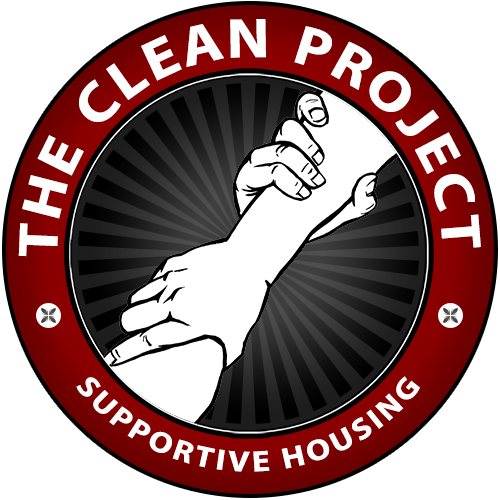The Clean Project has embraced a three-phase plan of helping those individuals experiencing homelessness restore their lives. These three phases are:
- Provide “Immediate Shelter”;
- Offer “Support Services”; and
- Move into “Permanent Housing”
This is “Supportive Housing”. We did not originate this plan. In fact, for a time we opposed the idea of housing anyone with a substance abuse disorder who did not first agree to become clean of street drugs. However, history has shown that immediate shelter, coupled with support services (often called “wrap-around services”) is the best and most cost-effective way to help disadvantaged people move from homelessness to stable, productive lives, and eventually live in a home of their own (permanent housing). A large percentage of substance dependent people moving into a shelter eventually go into substance treatment programs because they see the benefits played out in the lives of people they know.
The process typically starts with the person entering immediate, temporary shelter. Treatment of most (or all) healthcare problems is much more likely to culminate in a successful outcome if someone is residing in any type of shelter or housing. If appropriate and desired, treatment is offered to help release the individual from the clutches of the substance in their system, better handle a mental health disorder or disease, and treat any number of other medical problems the person is dealing with.
Not all previously homeless individuals are able to maintain a job, but for those who are, and with medical issues under control, it’s time to find a job that they will enjoy and be successful doing. Depending on the individual, training may be required before “landing” that all important income source.
With healthcare and job issues under control, it’s time to look for, and obtain permanent housing.
Housing and services are handled by a variety of organization types encompassing public and private, secular and faith-based, and for-profit and non-profit.
Supportive housing works well for those individuals and families who cannot obtain stable housing due to:
- Experiencing homelessness
- Very low income
- Serious, persistent issues that may include;
- Substance abuse disorders
- Mental health issues
- HIV/AIDS
- Chronic illness
- Diverse disabilities
- Other serious challenges
Supportive housing often includes these voluntary wrap-around services:
- Alcohol and substance abuse disorder treatment
- Mental health treatment
- Life skills training
- Job training
- Job placement
People in need of this type of assistance typically work with a case manager who oversees the wrap-around services.
Supportive housing is a practical and realistic solution for people with multiple challenges to improving their lives, while reducing (as much as possible) the overall costs.
